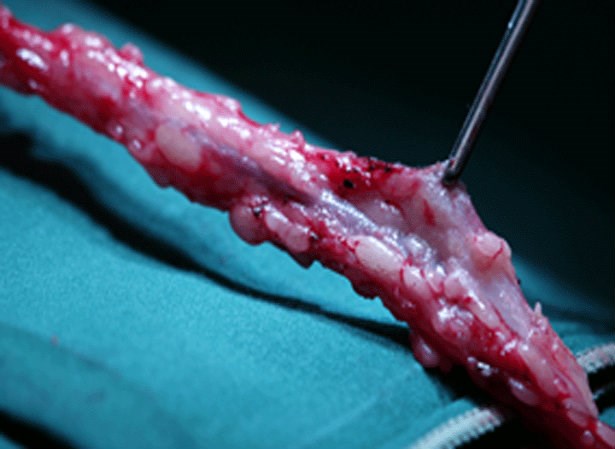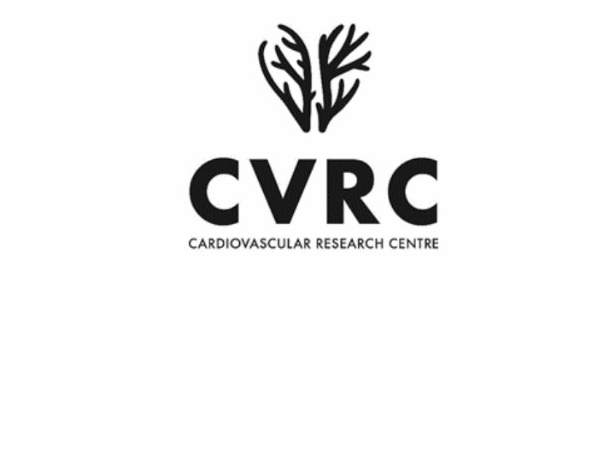Cardiovascular Research Centre (CVRC) - translational cardiovascular research
Cardiovascular and haematological diseases, such as arrhythmias, myocardial infarction, thrombosis, bleeding, haematological cancer diseases and heart failure are common causes of death in the industrialised Western world and the cost for the society and the health care system to treat these diseases is tremendous. It is of main importance to strengthen research activities to identify new mechanisms, risk factors and new target principles for more effective diagnosis, treatment and prevention of these diseases.
About this group
Group information
Cardiovascular Research Centre (CVRC) is a translational cardiovascular research group forming a network at Örebro University and Örebro University Hospital/Region Örebro County working with basic, translational and clinical research to identify new mechanisms, risk factors and new target principles for more effective diagnosis, treatment and prevention of cardiovascular and haematological diseases.
The overall strategy for CVRC is to support internal and external academic and industrial research collaboration and to contribute to a successful and high-quality third cycle education in the field of cardiovascular research. A main task of this larger research group is to support younger employees active in the cardiovascular and inflammatory research fields through cross-group activities such as journal clubs, research discussions and research meetings. Individual projects and connected research groups are also considered to have a particularly great benefit from these activities. Increased collaboration also promotes the emergence of completely new research projects with translational research design. The CVRC has been ranked as a strong research environment by external evaluators.
You may find more detailed information regarding the researchers and different research projects performed by the network by clicking at the tab “Researchers” and “Research projects” above.
Researchers
- Torbjörn Bengtsson
- Cecilia Bergh
- Dick Delbro
- Mats Dreifaldt
- Gabriella Eliason
- Karin H Franzén
- Ole Fröbert
- Knut Fälker
- Magnus Grenegård
- Hans Hjelmqvist
- Tal Hörer
- Hazem Khalaf
- Ashok Kumawat
- Madelene Lindkvist
- Liza Ljungberg
- Mulugeta Melkie Zegeye
- Jessica Montero
- Kristofer Nilsson
- Eva Oskarsson
- Eleonor Palm
- Geena Paramel
- Marcelo Petri
- Sofia Ramström
- Rosanne Reitsema
- Dirk Repsilber
- Allan Sirsjö
- Maria Åström
- Isabelle Grafver, PhD student
- Marianne Haug, PhD student
- Seta Kurt, PhD student
- Sofia Skröder, PhD student
- Anna Stene Hurtsén, PhD student
- Emanuel Wiman, PhD student
Research projects
Active projects
- Bacteriocins in prevention and treatment of infections
- Connection between primary and secondary hemostasis
- Cross-talk between platelets and the vessel wall
- Genetic variations in genes associated with inflammation and predisposition for altered biomarker profiles
- Gut microbe-derived diet metabolite and immunomodulatory responses in atherosclerosis
- Immune Responses to Influenza infection (IRI)
- Inflammation and lipids in vascular disease
- Interactions between microbiome, diet metabolite and inflammation in peripheral arterial disease
- Interleukin-6 as a therapeutic target for atherosclerosis
- Intestinal macrophages in pathogenesis of inflammatory bowel disease
- Link between primary hemostasis and inflammation
- Mapping of immune responses in patients with peripheral arterial disease
- Network medicine and systems biological approaches to modeling inflammation
- Plastic antibodies and nanoplasmonic sensors in targeting risk markers of periodontitis and systemic disorders
- Platelet function and protein contents in hematological diseases
- Platelet function in cardiothoracic surgery and cardiology
- Platelet function in transfusion medicine
- Role of CARD8 for inflammation in vascular cells
- Role of NLRP3 inflammasome and interleukin-1 (IL-1) in cardiovascular disease
- Role of zinc finger proteins in cardiovascular diseases and cancer
- Targeting immune responses in atherosclerosis
News & Media
-
Chemical Biology Workshop: Drug & Biomarker Discovery, Athens, November 23-25 2023

Magnus Grenegård, Karin H Franzén, Madelene Lindkvist and Marianne Haug participated at the Chemical Biology Workshop: Drug & Biomarker Discovery, arranged by the National Hellenic Research Foundation (NHRF) in Athens in memory of Dr Michael Alexis,...
-
Congratulations
Congratulations to Rosanne Reitsema for receiving European Federation of Immunological Societies- short-term fellowship to visit Prof. Tao Wang’s Lab at The University of Manchester.
-
Bioscience 2023

Bioscience Research & Diagnostics is an annual event arranged by Life Science Sweden. The 8th of November 2023, the 11th international partnering event Bioscience 2023 was arranged at Life City in Stockholm. Approximately 250 scientists from academy and...













